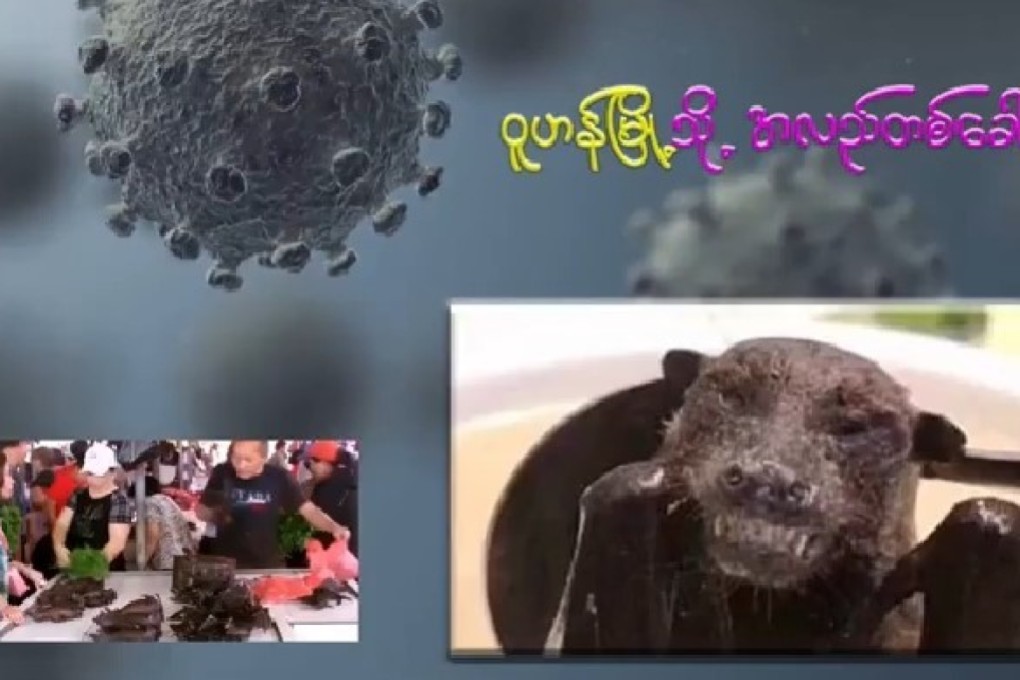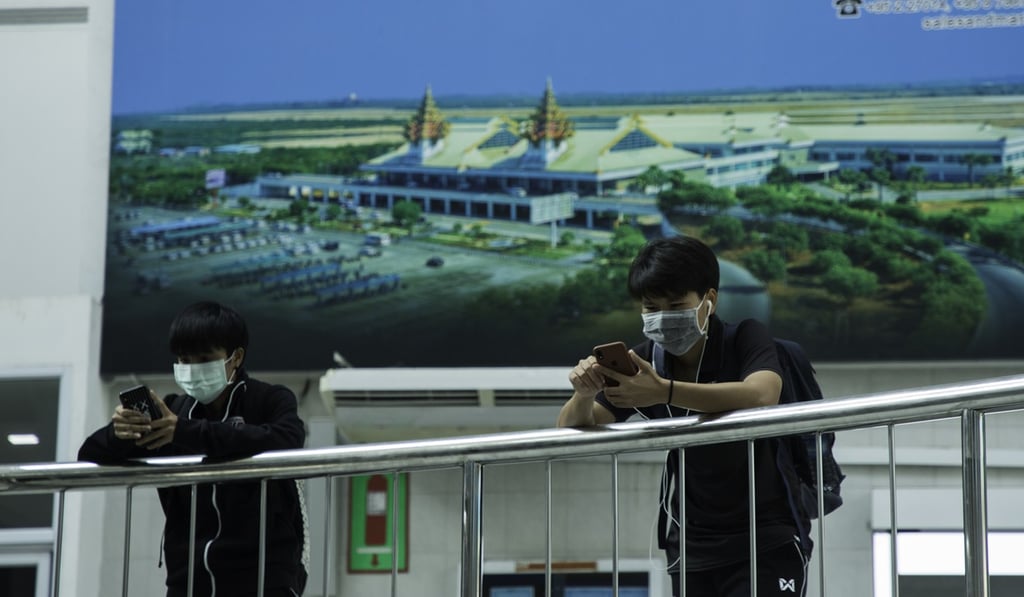Advertisement
Coronavirus: how Facebook clickbait fuels a perfect storm of fake news on China’s doorstep
- High internet penetration and poor digital literacy provide fertile ground for wild claims and misinformation in Myanmar
- Some people in Myanmar believe false rumours that onions and alcohol are antidotes, while others rely on celebrity news pages for ‘the truth’
Reading Time:6 minutes
Why you can trust SCMP

The Burmese-language video “A Visit to Wuhan” starts innocuously, introducing the city as a developed commercial hub with more than 11 million people. Melancholy violin music begins, as the narrator adds, “People in Wuhan eat different foods than in other countries, especially wildlife … In that city, bat soup is really famous.”
Zooming in on a market vendor chopping a large snake, the video then cuts to a girl biting into a bat’s wing. “A strange virus has arrived and many people died … We can’t say if it will reach Myanmar, so we have to think about how to protect ourselves,” the narrator says, offering five preventive measures which he adds were recommended by health experts: eat well-cooked food, sleep well, hold your breath near someone coughing, regularly wash your hands, and drink alcohol.
Misinformation regarding the coronavirus outbreak, and how it is spread, are not unique to Myanmar.
Advertisement
However, the speed with which misinformation has proliferated – the Visit to Wuhan video, published on the Facebook page BBM TV, attracted 5.4 million views within four days – illustrates the challenges of reining in fake news in the country of 52 million, where mobile broadband coverage jumped from 7 per cent to 90 per cent from 2013 to 2016, but 78 per cent of the population has poor digital literacy, according to a 2018 report by the telecoms company Telenor.
This combination of high internet penetration and low digital literacy has created a perfect storm for misinformation to run rampant in a country that shares a 2,200km (1,400-mile) border with China.
Advertisement

Many of Myanmar’s Facebook pages with clickbait content are translations – often of low quality – of English articles, sometimes with additions to the original content.
Advertisement
Select Voice
Select Speed
1.00x